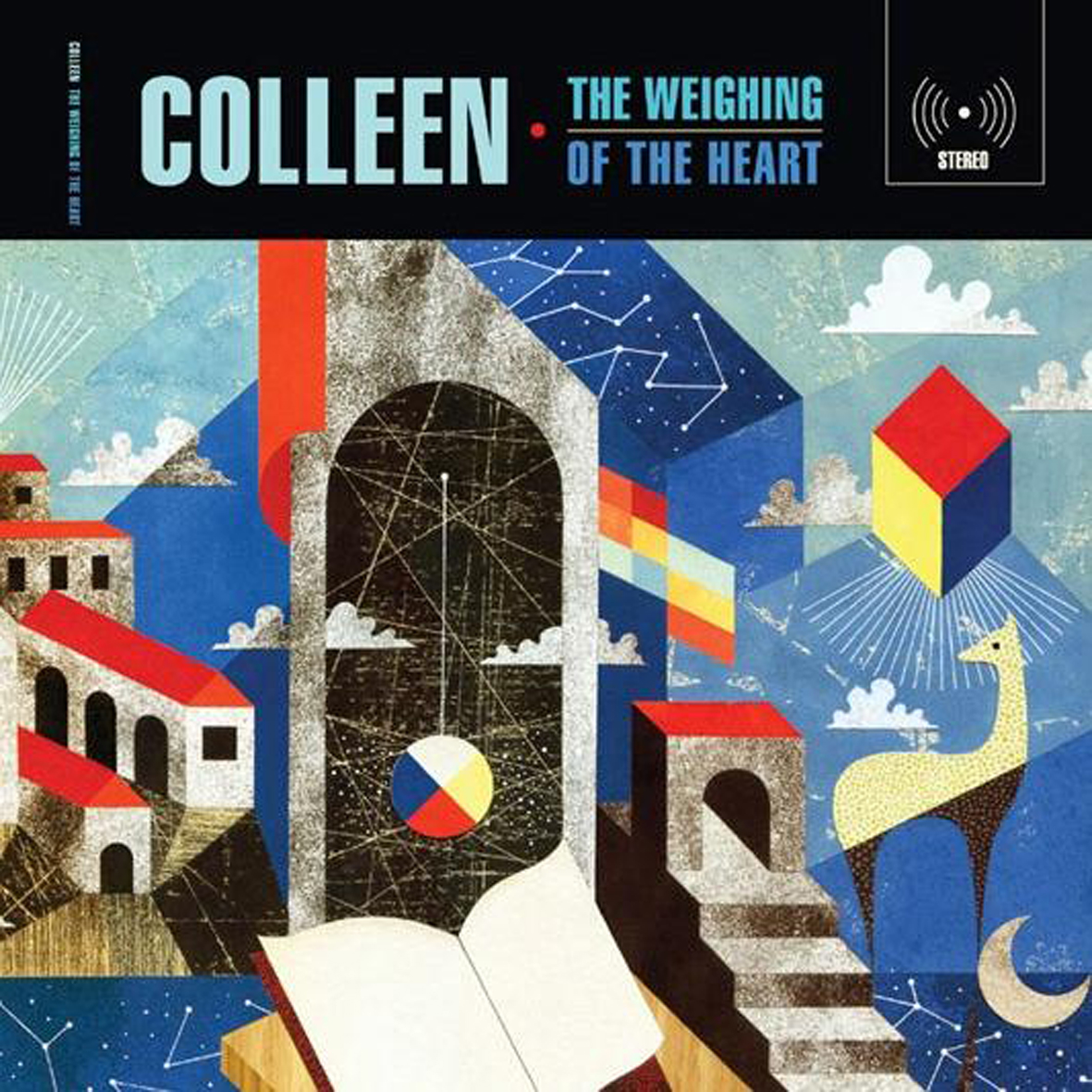 Cécile Schott released a truly impressive string of beautiful, distinctive albums in the early and mid '00s, but went mysteriously silent after 2007's Les Ondes Silencieuses (much to my chagrin).  Now she is thankfully back and seems creatively re-invigorated, yet noticeably transformed: her latest effort is every bit as good as her previous work, but takes her aesthetic in a much more pristine, stripped-down, and song-like direction than I expected.
Cécile Schott released a truly impressive string of beautiful, distinctive albums in the early and mid '00s, but went mysteriously silent after 2007's Les Ondes Silencieuses (much to my chagrin).  Now she is thankfully back and seems creatively re-invigorated, yet noticeably transformed: her latest effort is every bit as good as her previous work, but takes her aesthetic in a much more pristine, stripped-down, and song-like direction than I expected.
The Weighing of the Heart opens with a minor bombshell, as "Push the Boat Onto the Sand" marks the first time that Cécile has sung on one of her albums.  Normally, that would be a major bombshell ten years into a career, but her vocals sound so natural and appropriate that it actually took a few cycles through the album before I realized their significance.  Rather, it felt like she had been recording her whole career with a microphone in front of her and just finally got to some songs where singing seemed appropriate.  Weirdly, it seemed far more significant to me that these 11 songs felt uncharacteristically clear, simple, and intimate.  In the past, Colleen albums have sounded like neo-classical laptop collage; malfunctioning, electronically treated music boxes; or a small ensemble of chamber musicians, but until now she has never sounded like one person performing alone in a room.  That, much more than the presence of her voice, makes this album feel like Cécile's most bold and personal effort to date.
That does not necessarily mean that it is her best (her largely sample-based debut album is intermittently something of a masterpiece), but it is pleasantly striking to see another side of a consistently wonderful artist.  In other respects, however, The Weighing of the Heart stays true to the rather fluid "Colleen aesthetic" of dreamlike neo-classicism, which is no simple feat given the lack of effects and processing involved.  Rather, the otherwordliness in this case is achieved organically through cryptic lyrics about constellations, references to The Book of the Dead, looping repetition of phrases, erratic song lengths, and unconventional structures.  Of course, all of that only works because the underlying music is so beautiful, assured, and unusual: Cécile is something of a virtuosic multi-instrumentalist, building these pieces primarily from a uniquely tuned treble viola da gamba and some Moondog-inspired percussion mingled with classical guitar, clarinet, gamelan, piano, organ, and bells.
Nearly every song on the album is strange and memorable in some way, but the strongest is probably the propulsive and sensual "Going Forth By Day," which marries Spanish-sounding guitar (or viola da gamba) with bittersweet clarinet and some very spirited maraca.  Another strong candidate is the chameleonic "Ursa Major Find," in which multi-tracked, skipping vocals and bird-like string-squealing gradually give way to a lush, almost hymn-like choral interlude followed by a twinkling cascade of plucked strings and piano.  I was also struck by much Schott's songs vary texturally, dynamically, and rhythmically from one another this time around, as she seems to be able to effortlessly change gears between locked-groove-sounding a cappella ("Break Away"); gnarled string-bowing (the title piece); intricate plucked arpeggios; unusual, off-beat percussion; and sounding like a church organist without ever making a misstep or breaking the album's mood.
For me, an album like The Weighing of the Heart represents quite a rare treat, as it is not at all common for an artist to return from a long hiatus at full-strength with a bold new experimental streak.  The sole critique I can muster is that there is nothing here that left me as awestruck as some of Schott's more complex previous work ("Everyone Alive Wants Answers" was an instant candidate for my new favorite song when it came out).  Also, several of the shorter pieces on the album feel like interludes rather than fully realized compositions.  However, the trade-off is that Cecile's new work has an edge, intimacy, and immediacy that was not there before and the various "interludes" cohere into a very satisfying and enticingly mysterious whole.  I would not change that.  Also, those other albums are always there for me to listen to, so I would much rather hear Cécile plunge forward rather than repeat herself, which is exactly what she accomplished (wonderfully).  This was a very pleasant surprise in all respects.
 
Read More

